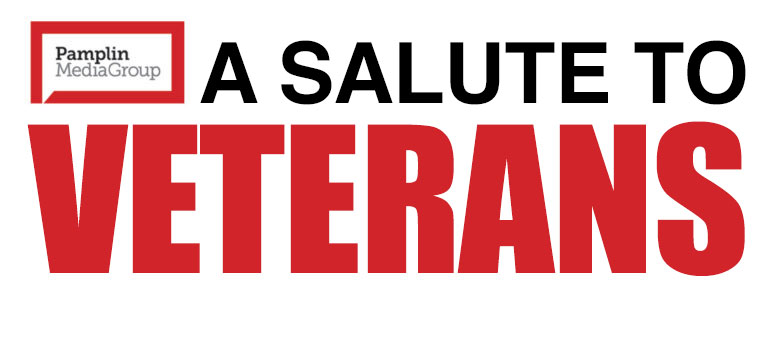Camaraderie, family and brotherhood
Standing in line at a supermarket, David Penaflor was approached by a long-haired teenager clutching a skateboard.
“I know this isn’t said often enough, sir,” the teen said. “But thank you for your service.”
Penaflor thanked the young man and gave him his business card, promising to mail a hat to the teen if he wanted one.
“This helps me recognize the veterans out there,” Penaflor said. “When you wear that hat, or when I wear that hat, I represent all veterans, and they represent me. I say thank you for your service.”
Penaflor devotes much of his time to recognizing and celebrating veterans’ military service. He took over as president of the Oregon Trail chapter of the Korean War Veterans Association this year to recruit new members and re-engage old ones. One of his most significant lifts in the last year has been the new Korean War Memorial Interpretive Center in Wilsonville, slated to open early next year.
“It’s a joy,” Penaflor said of his presidency. “I’m serving my veterans, building interpretive centers, meeting veterans at their homes and saying, ‘You mean something to the community.’”
Penaflor is a Korean Defense Veteran, meaning he is one of millions of U.S. military personnel who have served in South Korea since the signing of the Korean Armistice Agreement. He enlisted in the Army and did two tours in Korea between 1975 and 1977. His most memorable moment happened when he was stationed at Camp Greaves in the Korean Demilitarized Zone.
On Aug. 18, 1976, a U.S. Army captain and lieutenant were killed by North Korean soldiers while attempting to prune a tree blocking the line of sight in what is known as the Korean ax murder incident. The U.S. responded days later with a show of force called Operation Paul Bunyan.
“That was all when I was there. It was just down the road,” Penaflor said. “I didn’t know that was going on until after, when we heard, and that almost caused the war to start again.”
After he left the military in 1979, Penaflor worked for the U.S. Postal Service until he retired in 2013. It wasn’t until 2018 that he joined the KWVA and had people to talk to about his experience who could relate. This is a common experience for veterans, he said.
“I think our members enjoy the KWVA because it’s a camaraderie. It’s a family. It’s a brotherhood,” he said. “You can sit down at a table and share and reminisce.”
Penaflor’s passion for cultivating support and remembrance for fellow veterans is driven, in part, by his family’s history of serving in Korea.
“I have a relationship with South Korea right now,” he said. “I have an involvement because my family served there. I can see the connection.”
His father, paternal uncle, and father-in-law fought in the Korean War. His maternal uncle did as well and was captured and held as a prisoner of war for 33 months.
“He said he would do it again,” Penaflor said. “Just think about it — he was in a prison camp for 33 months.”
Penaflor visits South Korea as often as he can and is also a missionary for a church there. During his most recent visit, he was invited to share his experience as a veteran as part of a special ceremony. Little did he know he’d be delivering the speech to the president of South Korea as an honored guest at his dinner table.
“When he sits down, there’s all these people at the table, and he doesn’t speak to any of them. He speaks to me,” Penaflor said. “He leans over the table — ‘Thank you for your service from my country and your family’s service. I would like to see you here every year.’”
Penaflor gave his speech, and as the applause from four-star generals and foreign dignitaries in the audience died down, the president stood and brought Penaflor onto the stage.
“Next thing I know, he grabs my left hand and squeezes it,” he said.
Hand-in-hand, they bowed to the crowd, and the president thanked Penaflor again. Out of all the people who could have been chosen for such an honor, Penaflor has wondered why he was given the opportunity.
“I truly believe, because of my family’s service, that that became a possibility,” he said. “It was great. Something I’ll never forget.”


